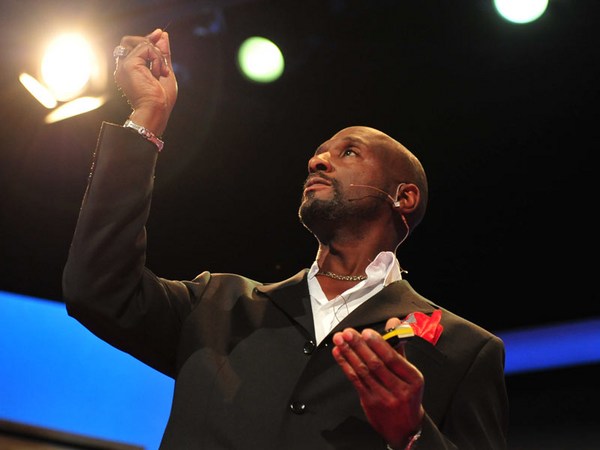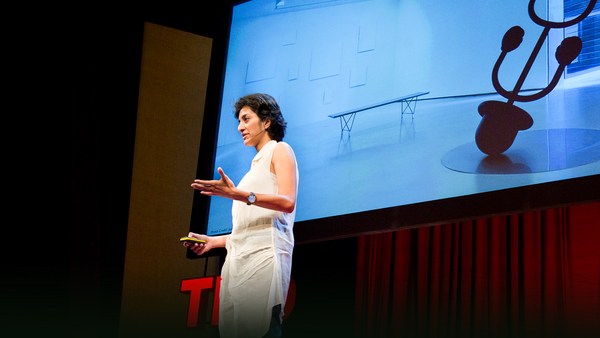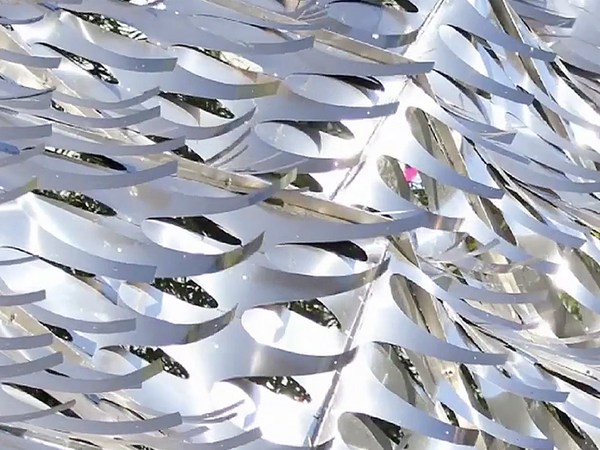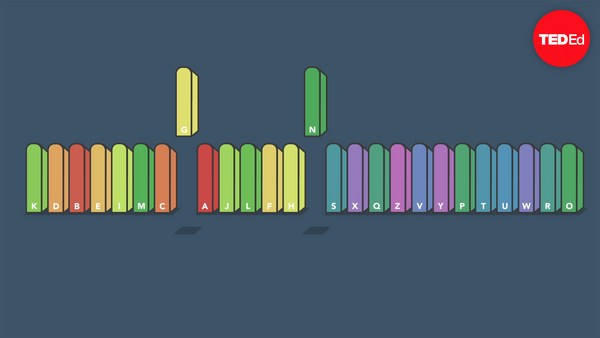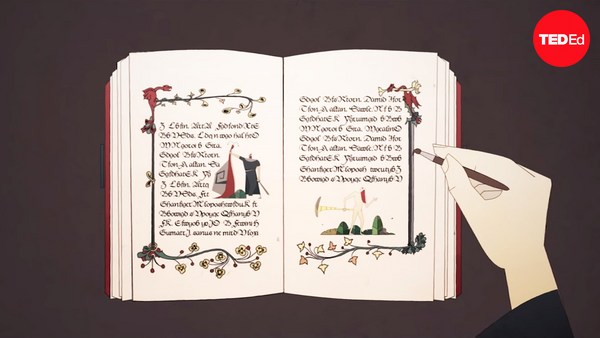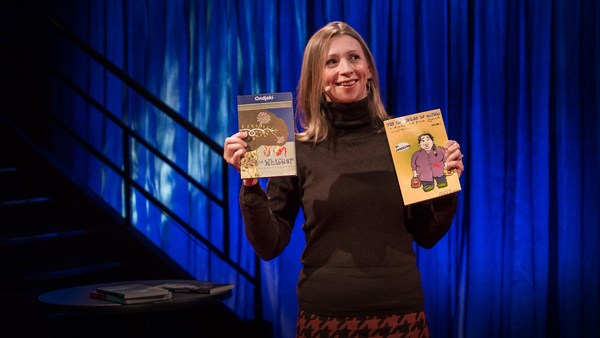I'm an artist and I cut books. This is one of my first book works. It's called "Alternate Route to Knowledge." I wanted to create a stack of books so that somebody could come into the gallery and think they're just looking at a regular stack of books, but then as they got closer they would see this rough hole carved into it, and wonder what was happening, wonder why, and think about the material of the book. So I'm interested in the texture, but I'm more interested in the text and the images that we find within books.
In most of my work, what I do is I seal the edges of a book with a thick varnish so it's creating sort of a skin on the outside of the book so it becomes a solid material, but then the pages inside are still loose, and then I carve into the surface of the book, and I'm not moving or adding anything. I'm just carving around whatever I find interesting. So everything you see within the finished piece is exactly where it was in the book before I began.
I think of my work as sort of a remix, in a way, because I'm working with somebody else's material in the same way that a D.J. might be working with somebody else's music. This was a book of Raphael paintings, the Renaissance artist, and by taking his work and remixing it, carving into it, I'm sort of making it into something that's more new and more contemporary. I'm thinking also about breaking out of the box of the traditional book and pushing that linear format, and try to push the structure of the book itself so that the book can become fully sculptural.
I'm using clamps and ropes and all sorts of materials, weights, in order to hold things in place before I varnish so that I can push the form before I begin, so that something like this can become a piece like this, which is just made from a single dictionary. Or something like this can become a piece like this. Or something like this, which who knows what that's going to be or why that's in my studio, will become a piece like this.
So I think one of the reasons people are disturbed by destroying books, people don't want to rip books and nobody really wants to throw away a book, is that we think about books as living things, we think about them as a body, and they're created to relate to our body, as far as scale, but they also have the potential to continue to grow and to continue to become new things. So books really are alive. So I think of the book as a body, and I think of the book as a technology. I think of the book as a tool. And I also think of the book as a machine. I also think of the book as a landscape. This is a full set of encyclopedias that's been connected and sanded together, and as I carve through it, I'm deciding what I want to choose. So with encyclopedias, I could have chosen anything, but I specifically chose images of landscapes. And with the material itself, I'm using sandpaper and sanding the edges so not only the images suggest landscape, but the material itself suggests a landscape as well.
So one of the things I do is when I'm carving through the book, I'm thinking about images, but I'm also thinking about text, and I think about them in a very similar way, because what's interesting is that when we're reading text, when we're reading a book, it puts images in our head, so we're sort of filling that piece. We're sort of creating images when we're reading text, and when we're looking at an image, we actually use language in order to understand what we're looking at. So there's sort of a yin-yang that happens, sort of a flip flop. So I'm creating a piece that the viewer is completing themselves.
And I think of my work as almost an archaeology. I'm excavating and I'm trying to maximize the potential and discover as much as I possibly can and exposing it within my own work. But at the same time, I'm thinking about this idea of erasure, and what's happening now that most of our information is intangible, and this idea of loss, and this idea that not only is the format constantly shifting within computers, but the information itself, now that we don't have a physical backup, has to be constantly updated in order to not lose it. And I have several dictionaries in my own studio, and I do use a computer every day, and if I need to look up a word, I'll go on the computer, because I can go directly and instantly to what I'm looking up. I think that the book was never really the right format for nonlinear information, which is why we're seeing reference books becoming the first to be endangered or extinct.
So I don't think that the book will ever really die. People think that now that we have digital technology, the book is going to die, and we are seeing things shifting and things evolving. I think that the book will evolve, and just like people said painting would die when photography and printmaking became everyday materials, but what it really allowed painting to do was it allowed painting to quit its day job. It allowed painting to not have to have that everyday chore of telling the story, and painting became free and was allowed to tell its own story, and that's when we saw Modernism emerge, and we saw painting go into different branches. And I think that's what's happening with books now, now that most of our technology, most of our information, most of our personal and cultural records are in digital form, I think it's really allowing the book to become something new. So I think it's a very exciting time for an artist like me, and it's very exciting to see what will happen with the book in the future.
Thank you.
(Applause)
